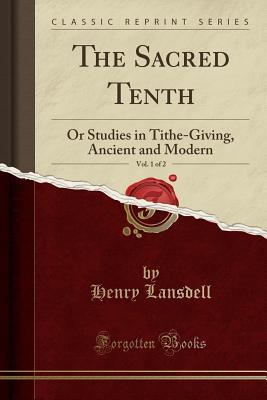The Importance of Vision
 Thanksgiving Day 2021 Sometimes ministers are cautious about asking the congregation for resources because they are worried the people will be irritated and the request will do more harm than good. I have always felt that if the request is made properly there will be excitement and joy rather than push-back. I reflected on this recently when I experienced a request for resources. A church that I know well held its annual Thanksgiving Day. This is the time of the year when the congregation is asked to fill red bags with items to be given to the homeless and the needy and to bring them to church on the day. The atmosphere was extremely positive. Why? I started to think about what it was that made me give and feel happy about doing it.
Thanksgiving Day 2021 Sometimes ministers are cautious about asking the congregation for resources because they are worried the people will be irritated and the request will do more harm than good. I have always felt that if the request is made properly there will be excitement and joy rather than push-back. I reflected on this recently when I experienced a request for resources. A church that I know well held its annual Thanksgiving Day. This is the time of the year when the congregation is asked to fill red bags with items to be given to the homeless and the needy and to bring them to church on the day. The atmosphere was extremely positive. Why? I started to think about what it was that made me give and feel happy about doing it. First, the service was celebratory; giving thanks to God for the many blessing we have received.
Second, it was linked to a gospel mandate and the sermon focused on the spread of the kingdom of God in the parables of the mustard seed and the leaven that permeates the whole loaf.
Third, there was a very creative children’s ministry segment. At the front of the church, a life-size red bag was situated. It was a very large version of the smaller bags we were to fill at the supermarket. Some kids were invited forward and a brief message was given and out of the large replica bag, items such as soap, toilet paper etc, were catapulted through the air by an unseen hand in parabolic arcs with the kids scrambling to catch them in their small bags.
Fourth, there was a powerful video featuring a school principal and a chaplain of a disadvantaged school talking about the impact that the goods had in the lives of kids from fractured families.
Fifth, we also heard an interview with one of the volunteers who helped walk the streets of Brisbane CBD distributing items to the homeless and inviting them back to church for a meal. She also testified to how she joined the ministry and how much satisfaction it gave her. The whole service highlighted the vision of the church to reach out to the community spiritually, and practically. At the end of the service there was a monster morning tea with an assortment of tasty goodies.
Later I asked one woman for her impressions of the service. She felt it was a celebration of generosity to those who were not as well off as we are. There was real joy and delight in our being able to help. It made her reflect on how many blessings we have received from God. She noted that we don’t understand why some of the recipients are in the plight they are in but we have the opportunity to give mercy without judging. On the theme of Thanksgiving, she felt that this was not merely about being thankful, but the day gave her the opportunity to pay it forward, attributing the blessings to God and focusing on our ability to share those blessings.
I asked her if she felt in any way manipulated. She said she felt no manipulation at all and felt by contrast that people who think the churches are in the habit of manipulating people to give, are most likely being manipulated themselves by the modern zeitgeist.
The take-away is that raising resources involves sharing a gospel vision for the advancement of the kingdom of God and asking people to give generously toward it. That almost always produces funds for gospel ministry and a sense of delight in the congregation. For more on the theme of generosity see my book, Giving Generously. Buy the Book

 In my book Giving Generously I recommend holding a Commitment Day when the minister asks for pledges to fund the work of church ministry for the following year. The Commitment Day is not a standalone event but the culmination of a four to six week time when the vision and ministry of the church are highlighted to the congregation. A number of activities are held in this period but the most important is the preaching series which accompanies it. It is important to note that raising resources is only a secondary purpose of the series. The primary purpose of such a commitment series is to build up the spiritual lives of the congregation and engage them in the work and vision of the church. It is for this reason it is important to hold an annual Commitment Day even if there is no pressing financial need.
In my book Giving Generously I recommend holding a Commitment Day when the minister asks for pledges to fund the work of church ministry for the following year. The Commitment Day is not a standalone event but the culmination of a four to six week time when the vision and ministry of the church are highlighted to the congregation. A number of activities are held in this period but the most important is the preaching series which accompanies it. It is important to note that raising resources is only a secondary purpose of the series. The primary purpose of such a commitment series is to build up the spiritual lives of the congregation and engage them in the work and vision of the church. It is for this reason it is important to hold an annual Commitment Day even if there is no pressing financial need.  The Grace of Giving If you were asked who were the top three Christian leaders of the 20th century, who would you say? Of course the list is subjective and influenced by personal appeal and one’s own theological tradition. When I ponder that question the following names jump out to me.
The Grace of Giving If you were asked who were the top three Christian leaders of the 20th century, who would you say? Of course the list is subjective and influenced by personal appeal and one’s own theological tradition. When I ponder that question the following names jump out to me.  Where should I give? Several years ago the sad case of a 92 year old UK woman made the news. She had come onto the radar of a range of charitable organisations, who would ring and mail requests for donations to potential donors. I am not suggesting that there is necessarily anything wrong with this, but in the case of this lady, she was receiving so many calls and requests for money from so many different organizations that she felt completely overwhelmed. The tragic consequence was that due to these and other pressures, the poor lady took her own life.
Where should I give? Several years ago the sad case of a 92 year old UK woman made the news. She had come onto the radar of a range of charitable organisations, who would ring and mail requests for donations to potential donors. I am not suggesting that there is necessarily anything wrong with this, but in the case of this lady, she was receiving so many calls and requests for money from so many different organizations that she felt completely overwhelmed. The tragic consequence was that due to these and other pressures, the poor lady took her own life. Landsell was born in Kent in 1841, son of a school master. He was a student at the London College of Divinity and was ordained priest in the Church of England in 1868. A teetotaller, he gained a reputation as a dynamic preacher, which he combined with a passion for missions. Obviously he was bitten with the travel bug, and not having been tied down by the incumbency of a parish, began a roving existence visiting many countries and distributing bibles and Christian literature as he did so. Initially he visited France, Germany and other western European countries but soon embarked on multiple journeys. These included Northern and Eastern Europe, and through Asia to Japan and across the Pacific to San Francisco.
Landsell was born in Kent in 1841, son of a school master. He was a student at the London College of Divinity and was ordained priest in the Church of England in 1868. A teetotaller, he gained a reputation as a dynamic preacher, which he combined with a passion for missions. Obviously he was bitten with the travel bug, and not having been tied down by the incumbency of a parish, began a roving existence visiting many countries and distributing bibles and Christian literature as he did so. Initially he visited France, Germany and other western European countries but soon embarked on multiple journeys. These included Northern and Eastern Europe, and through Asia to Japan and across the Pacific to San Francisco.
 Pay It Forward Some years ago there was a book called Pay It Forward written by Catherine Ryan Hyde. It was subsequently turned into a movie. It was about the concept of doing a good deed and then asking that the recipient pass on the blessing, to pay it forward, rather than paying the giver back. I don’t know what inspired Catherine Ryan Hyde but the idea of paying it forward has a considerable history.
Pay It Forward Some years ago there was a book called Pay It Forward written by Catherine Ryan Hyde. It was subsequently turned into a movie. It was about the concept of doing a good deed and then asking that the recipient pass on the blessing, to pay it forward, rather than paying the giver back. I don’t know what inspired Catherine Ryan Hyde but the idea of paying it forward has a considerable history.  The Easter season is with us again. When I was a boy I was excited by the prospect of extra holidays and chocolate eggs and other goodies. I was not raised in a church going home so was only vaguely aware of any deep spiritual significance of Good Friday or Easter Sunday. Nor did I think I should change my life in any way except to monitor my chocolate intake to avoid getting gorged. When I became a Christian the profound significance of Christ’s death for sins became much clearer to me and as a result I needed to change my life from serving myself to following Jesus.
The Easter season is with us again. When I was a boy I was excited by the prospect of extra holidays and chocolate eggs and other goodies. I was not raised in a church going home so was only vaguely aware of any deep spiritual significance of Good Friday or Easter Sunday. Nor did I think I should change my life in any way except to monitor my chocolate intake to avoid getting gorged. When I became a Christian the profound significance of Christ’s death for sins became much clearer to me and as a result I needed to change my life from serving myself to following Jesus.

 The apostle Paul on one occasion urged his hearers to be generous, to share, and to remember those less fortunate. He quoted some famous words of Jesus:
The apostle Paul on one occasion urged his hearers to be generous, to share, and to remember those less fortunate. He quoted some famous words of Jesus: